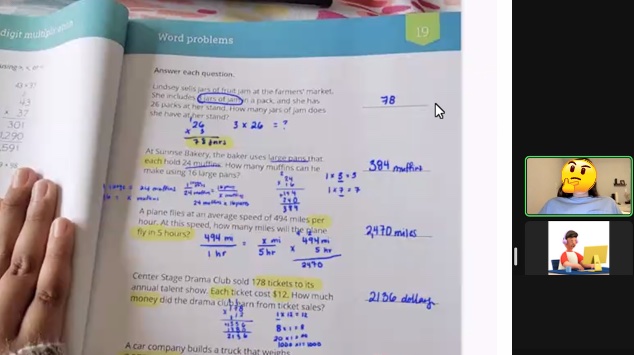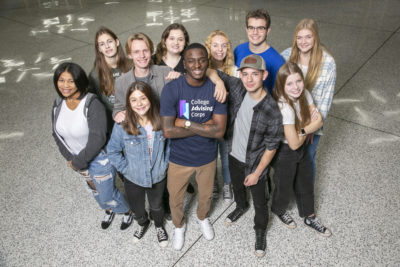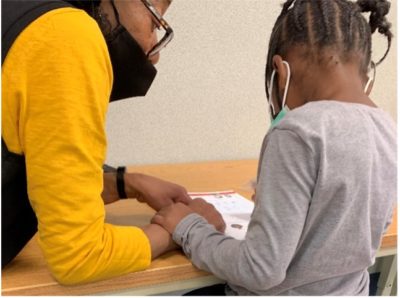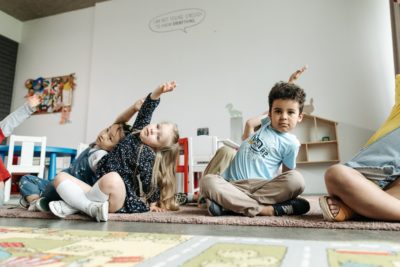

It’s easy to feel overwhelmed in the face of the Department of Public Instruction’s newly released data on learning loss and national news on student mental health. However, there are bright spots across our state and country that are making a real impact on the academic prowess and emotional wellbeing of our primary and secondary students. Ours is one such program.
A community response to a statewide problem
In October 2021, Mariela Hernandez, a family navigator from Orange County Health Department’s Family Success Alliance, was looking for tutoring for a middle schooler who participated in extracurriculars and sports. His family was Spanish-speaking, struggled to help him with his academics, and wanted him to experience academic success without having to miss enrichment opportunities to get the support he needed. Many families face similar choices and barriers to getting their students the help they need.
In response to Mariela’s request, a collective of people and organizations across Orange County came together to pilot a one-on-one virtual tutoring program called Tutoring After 6 p.m. We provided students with “near-peer” mentor-tutoring, training people close in age to the students they worked with in a student-centric approach tailored to the student’s homework and subject area needs. Hour-long tutoring sessions occurred between 6-8 p.m. weekly for most students and twice weekly for students who needed support in multiple subject areas.
The results
Our program ultimately served 48 5th-12th graders across Orange County with 60 college students and community volunteers. A little under half (46%) of the students spoke Spanish.
We tutored students in the following subjects:
- Math: 36 students
- History/social studies: 18 students
- English/language arts: 15 students
- Sciences: 14 students
- World languages: 1 student
Families’ said in a survey that our program has not only impacted students’ grades but also their confidence and overall mental health. This is especially true for students from Spanish-speaking families.
| Overall improvement | Improvement in Spanish-speaking students only | |
| Grades | 79.3% | 100% |
| Confidence in academics & overall success | 79.3% | 100% |
| Mental health & emotional wellbeing | 75% | 100% |
| Students’ rating of experience | 9.35/10 |
We’ve been thrilled that a program that connected students and mentor-tutors virtually has had such a positive perceived impact. Studies have shown the power of near-peer tutoring relationships to improve student learning, engagement, and confidence. By partnering with local college students, the potential for social capital — “the resources that arise from a web of developmental relationships, which people can access and mobilize to help them improve their lives and achieve their goals” — is embedded in the program, arising through conversation during tutoring sessions as students and tutors develop a relationship and share their personal experiences.
We’ve found that the model also effectively embeds anti-racism and equity in their time together, centering students’ and tutors’ identities at the foundation of the relationship. One parent shared that her child “knows that his tutor is going to help him with his homework, so he is more relaxed knowing that he has help.” Another parent shared that her daughter “really enjoyed her tutoring session. I heard her laugh and she was so proud of herself which shows more confidence. I’m thankful for this program.”
Impacts on undergraduate tutors and community volunteers
Our program’s impact on the tutors is also worth mentioning. The majority of our tutor corps is made up of undergraduate students earning serving learning credit through UNC’s School of Education. At the end of the experience, one tutor in UNC’s Pre-MAT program shared, “I have learned a substantial amount in regards to the various ways of teaching, learning, communicating, but most importantly the significance of giving back … Providing my time to tutor younger students definitely gave me a sense of purpose [and] reminded me of when I was in grade school and had mentors that greatly contributed to my identity academically and as a person in our community.”
Through our trainings, we’re teaching our tutors to be more attuned and in tune with the needs of the community. We train them on challenges in education and provide a wider and broader perspective on community development. Megan Raymond, a community partner from Reintegration Support Network with her MSW and years of clinical experience with children and families, provides motivational interviewing skills and ways to approach tutoring with a trauma-informed lens.
Given Grow Your World’s focus on growth mindset and our experience with social-emotionally supportive virtual spaces, we train tutors to help youth develop growth mindset practices and teach them to use Zoom tools that support learning and engagement. Tutors have shared they found trainings “very informative and helpful,” “interactive,” and “positive,” and many spoke of being “excited” to begin tutoring after the training experience.
Their enthusiasm is evident in the highlights they share in their closing forms after each session. One tutor said, “Getting to see [the student she works with] understand domain and range!” Another shared pride when the student was “improving so much [and] solving math problems on her own.” Beyond discrete academic goals, tutors celebrate students’ shifts toward a growth mindset, sharing that, “We confronted the notion that [the student] is ‘not good at math’,” and celebrating students’ “eager[ness] to learn.” It’s exciting to see tutors doing “with” students, not “for” them and celebrating the opportunity to accompany youth in the learning process.
The impact of technology to reach more for less
Technology has allowed our program to expand the reach of resources from densely populated spaces like universities across our county to its most rural locations. We’ve also used technology to expedite administrative work, creating tools to pair students and tutors, communicate with families effectively in their preferred language, exchange materials securely, and manage and supervise many one-on-one tutoring sessions simultaneously, all without losing program fidelity or overtaxing staff and volunteers.
What’s next?
We hope to expand our impact by partnering with schools and districts to reach more students in the Triangle and across the state. We also are excited to roll out a technological integration that allows teachers to communicate directly with tutors about homework and strategies to support specific students.
Interested in learning more or inquiring about partnership opportunities? We’re hosting a webinar Thursday at noon for those interested. And don’t hesitate to reach out. I’m the executive director of Grow Your World, and you can reach me at sophie@growyourworld.org.




